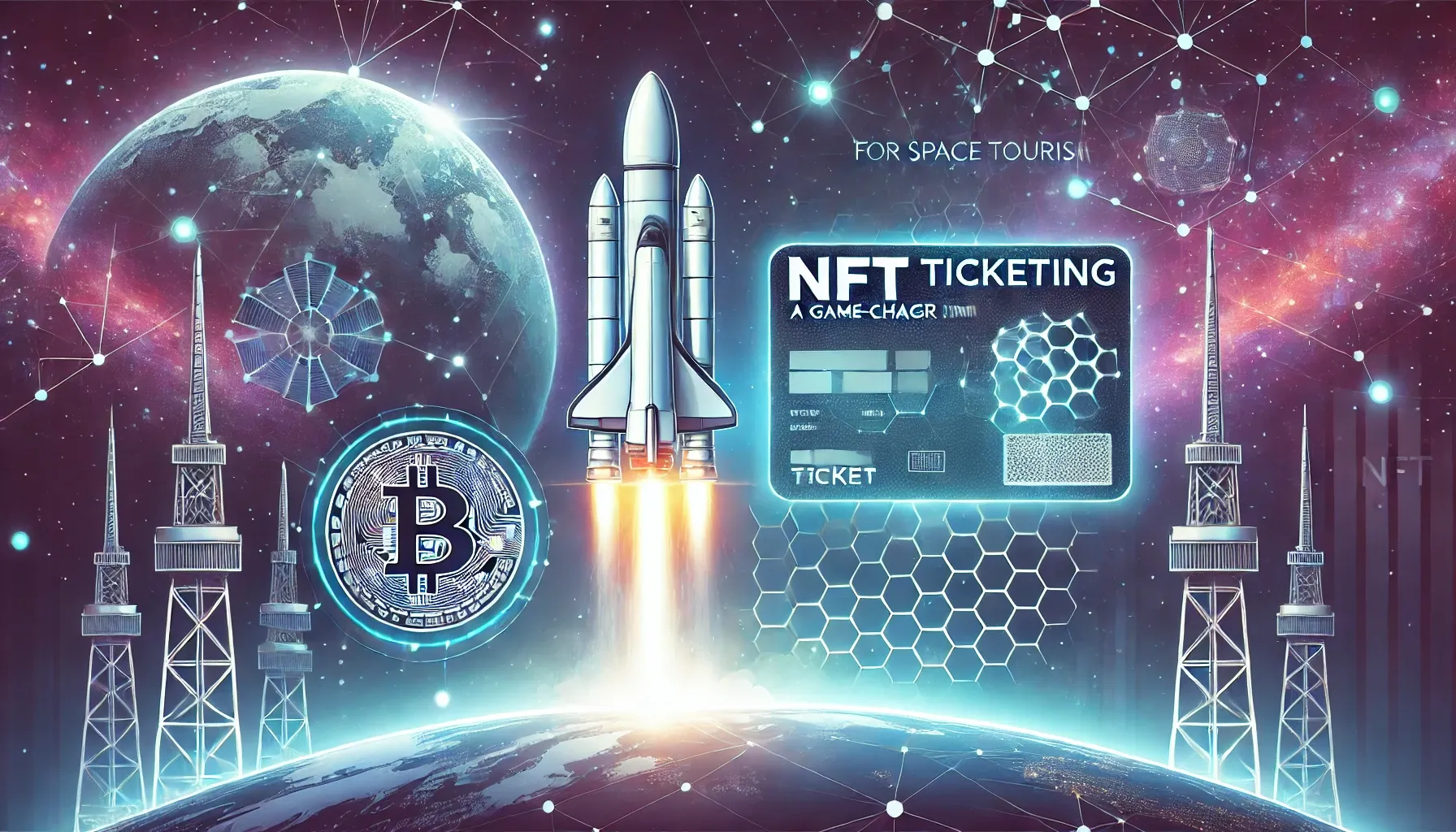
Space Tourism NFT Ticketing: A Revolution in the Sector
Space tourism is quickly becoming a reality, and NFT ticketing is a game-changing way to handle the challenges of this emerging sector. Using non-fungible tokens (NFTs) in ticketing can improve customer experiences, expedite operations, and offer special advantages that conventional ticketing systems cannot match. SpaceX, Virgin Galactic, and Blue Origin are leading the way in this regard.
The Meeting Point of Space Tourism and NFT Ticketing
The appeal of space travel is accompanied by enormous logistical difficulties. NFT ticketing has a number of benefits designed to meet the particular requirements of space travel.
Confirmed authenticity and ownership
NFTs offer a safe and verifiable way to verify ticket ownership. In a sector where fraud could have serious financial repercussions, this is essential.
Tailored Experiences for Customers
Unique experiences like private tours, astronaut meet-and-greets, or special pre-flight training sessions can be added to NFT tickets.
Authority over resale markets
Businesses can control resale prices and get a cut of secondary market sales with integrated smart contracts, generating steady income streams.
Engagement and Loyalty
NFT ticket holders can develop a stronger bond with the brand by receiving loyalty benefits like exclusive merchandise or discounts on subsequent flights.
- Benefits for Space Tourism Businesses.
- NFT ticketing's main advantages are.
- Fraud prevention and improved security.
- Unique and customizable experiences for clients.
- Money received from the sale of secondary tickets.
- Customer engagement and loyalty have improved.
- Streamlined the procedures for verifying customers.
- Availability of data insights regarding consumer behavior.
- VIP-only experiences and access.
- Event logistics management made easier.
- Connecting to the current reservation systems.
- Preparing for the future of changing ticketing technologies.
- Implementation considerations.
- Ensuring that systems are compatible with blockchain.
- Customer wallet integration that is easy to use.
- Legal issues pertaining to sales abroad.
- Procedures for data security and privacy.
- Capacity of NFT solutions to scale to meet high demand.
- Establishing collaborations with NFT marketplaces.
- Creating systems for automated resale regulation.
- Educating employees on NFT administration.
- Providing NFTs with strong customer support.
- Marketing techniques to inform prospective clients.
- An actual example is the NFT ticketing system used by SpaceX.
In space tourism, SpaceX's fictitious "AstroPass" NFTs provide a notable example of NFT ticketing. Holders of these special digital tokens get access to a range of unique space mission experiences. AstroPass, for example, could have the following.
- Access to a pre-launch event that will be live-streamed.
- Individualized training sessions with seasoned astronauts.
- A unique digital memento following the flight.
By developing a series of experiences connected to the NFT, SpaceX can guarantee that every ticket holder has a special, unforgettable trip while also improving customer satisfaction.
Comprehensive Illustrations of Business Realizations
Smart Contract-Based Dynamic Pricing
In space tourism, dynamic pricing based on demand is one creative application of NFT ticketing. As available seats fill up, smart contracts can be set to instantly change ticket prices, allowing the business to maximize profits without offending potential clients. If early buyers buy before demand spikes, this model not only makes money but also offers them the possibility of savings.
Gating with tokens for exclusive access
To give NFT ticket holders exclusive access to experiences that improve their journey, token gating can be used. For instance, access to a pre-launch dinner with business executives or a behind-the-scenes tour of the rocket manufacturing facility may be restricted to holders of particular NFTs. In addition to fostering a sense of community among ticket holders, this exclusivity raises the NFT ticket's perceived value.
Environmental sustainability projects
Environmental concerns are growing along with space tourism. NFT ticketing is a tool that companies can use to advertise sustainability projects. Each NFT ticket purchased, for example, might support a portion of environmental conservation initiatives, like funding space-related research or offsetting carbon emissions. In addition to increasing the ticket's value, this also helps the brand connect with environmentally conscious customers.
Accepting NFT Ticketing in Space Travel: A Conclusion
Businesses hoping to innovate and take advantage of this growing market can benefit greatly from the integration of NFT ticketing in space tourism. Businesses may increase customer satisfaction and guarantee revenue sustainability through creative resale mechanisms by offering safe, authentic, and customized ticketing experiences.